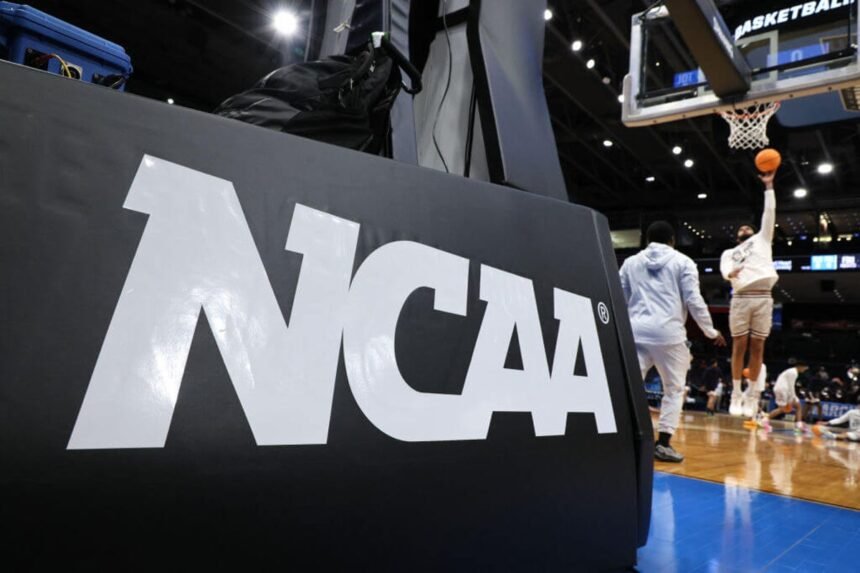The NCAA’s $2.8 billion lawsuit settlement is back in the hands of a federal judge. Attorneys for all involved parties filed briefs this week, with the final one coming Friday, addressing proposed changes to a roster limit plan that appears to be the last obstacle before final approval.
U.S. District Judge Claudia Wilken previously warned the NCAA and major college conferences that if they did not provide some protections to keep current athletes from being cut because of roster limits, she would deny the plan to settle a trio of antitrust suits.
Wilken handed down her order after hearing objections to the House v. NCAA settlement deal, which includes a revenue-sharing system that will permit schools to directly pay athletes starting in the fall.
Revisions from last week would allow college athletic departments to exceed the settlement’s proposed roster limits through voluntary “grandfathering” of any athletes who were previously assured roster spots.
According to the revised proposal, any athlete who has been or would have been cut as a result of the settlement’s roster caps can be “grandfathered in,” meaning those athletes will not count against the proposed roster limits for the duration of their college eligibility. That includes incoming freshmen for the 2025-26 academic year who had a previously offered spot revoked due to settlement preparations.
Multiple objectors responded with filings earlier this week, arguing the solution does not go far enough and athletes who have been or could be cut due to roster limits should be guaranteed their spots, either at their current school or another school.
“Unfortunately, given the harm the premature implementation of roster limits has caused (and which this court has already recognized), it appears mandatory grandfathering is now the only way to avoid and/or remedy harm caused by court-imposed roster limits,” said one of three objectors.
A final response from settlement lawyers for the NCAA and power conference defendants arrived Friday, maintaining that the most recent revision on roster limits should satisfy Wilken’s request and warrant immediate approval.
“Defendants maintain that the parties have fully addressed the Court’s remaining concerns and that there are no legal obstacles standing in the way of this historic settlement,” the filing said.
The plaintiffs’ attorneys filed a similarly supportive response to the adjustments earlier this week.
Another new filing in the House v. NCAA settlement.
This is the defendants’ response to recent objections on roster limits. Like the plaintiffs did earlier this week, the NCAA and power conference defendants maintain their roster limit revisions and request immediate approval. pic.twitter.com/Wd5dO33qFG
— Justin Williams (@Williams_Justin) May 16, 2025
Wilken has given no indication when she will make a final decision. It is possible that if the revisions do not satisfy her concerns, she could again kick it back to the lawyers for changes.
These latest adjustments come in the wake of a final approval hearing April 7, during which Wilken heard objections, including from athletes who had already lost or were at risk of losing their spot on a team due to the proposed roster limits. Wilken, who expressed support for the broader settlement, including the billions in damages and annual revenue sharing of more than $20 million per school, suggested during the hearing that the parties make changes to the roster limits.
Instead, settlement lawyers initially responded with an explanation for why the roster limits should remain as they proposed, which led to Wilken’s ultimatum.
The settlement’s falling apart at this stage would be catastrophic for the NCAA and college sports, which have been operating under the assumption of approval for months. The five power conference defendants — the ACC, Big Ten, Big 12, SEC and Pac-12 — have been working on a new enforcement body to operate outside the NCAA that will oversee the revenue-sharing system.
If Wilkens approves the deal, schools that opt into the settlement could begin making direct payments to athletes July 1. Some in college sports have also suggested that even without settlement approval, schools should continue to move toward direct payments to athletes.
In that scenario, the payment process would begin without the regulations that the settlement outlines. That could introduce even more uncertainty into the college sports landscape, exactly what the settlement agreement is attempting to fix.
(Photo: Andy Lyons / Getty Images)











